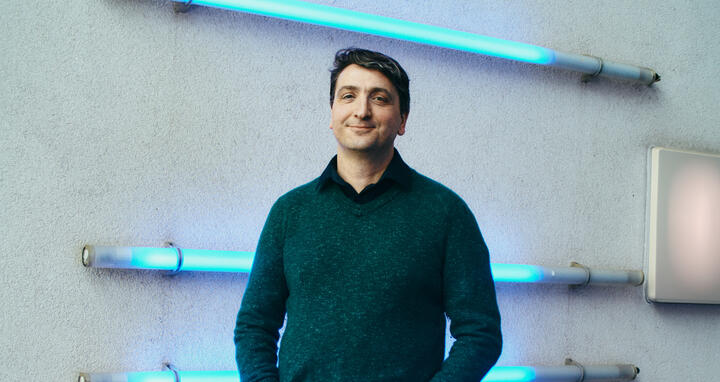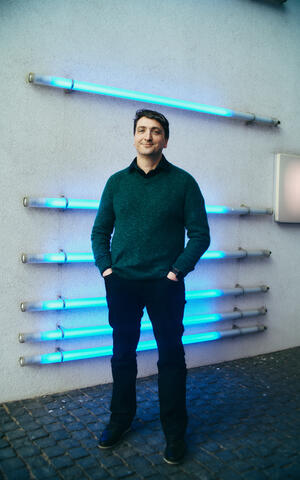Stan Gorski takes the helm of Strategic Initiatives
As our new head of Strategic Initiatives, Stan Gorski is turning his full attention to the future. “Together with the directorate and the faculty, we are identifying how we should evolve scientifically in the next 5 and 10 years,” Gorski says, “and then build the initiatives, partnerships, and infrastructure to make that vision a reality.”
In 2017 Gorski began working closely with Nikolaus Rajewsky at MDC-BIMSB on strategic projects such as the pan European LifeTime initative, a program to accelerate the adoption of breakthrough technologies in medicine. He worked as a scientific editor at the EMBO Journal in Heidelberg and in science management at the Universty of Würzburg before being officially recruited to the Max Delbrück Center in 2019.
Stan Gorski, Head of Strategic Initiatives
Along with Ana Pombo, Gorski has also been involved in initiating new strategic partnerships, such as the Nova Institute for Medical Systems Biology in Lisbon. He steered the application for the Center for AI-Accelerated Molecular Innovations in Medicine project (AI2M), the implementation of which is pending final funding approval from Helmholtz. AI2M will establish a new infrastructure for spatial and single cell biomedicine, AI, human cell models and bioengineering. Gorski will now work closely with the directorate, faculty and administration departments to shape the future strategy for Max Delbrück Center research, with a focus on these strategic areas and others, such as disease prevention.
In bioengineering, for example, the Max Delbrück Center is well positioned to move from understanding cells and tissues to engineering them – the same can be said for the genome, proteins and RNAs, he says.
“We’ve spent the past years learning how cells work. The next question is: Can we use this knowledge to re-engineer them to carry out specific functions, or even into new therapeutics?” Together with Max Delbrück Center researchers he also aims to drive initiatives that will engineer more complex model systems, such as organoids, that better reflect aspects of human biology. These can then be used to predict a patient’s disease progression, or to develop new cell therapies. “Together with our multi-omics technologies and AI, these approaches have the potential to reveal more precise strategies to prevent diseases and to treat them,” he says.
Gorski’s team will work closely with the Strategic Programs, Resources and Implementation department, which is now headed by Anne Ziemke, as well as the Innovation and Entrepreneurship department. As new strategic initiatives that are developed within his team come to fruition, they will be handed over to Ziemke’s team, which is in charge of implementing and delivering the current strategy. But Gorski’s role is not just about conceptual thinking, he emphasizes. “The most enjoyable part is being able to focus on all the exciting science done at the Max Delbrück Center. I look forward to working with the other teams to develop exciting initiatives and to identify the best partners to turn them into real benefits to society.”
Text: Gunjan Sinha






